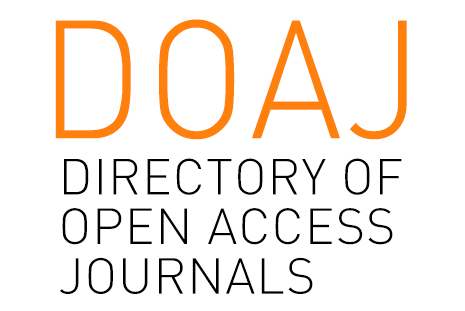Location
The Directory of Open Access Journals was launched in 2003 at Lund University, Sweden, with 300 open access journals and today contains ca. 10000 open access journals covering all areas of science, technology, medicine, social science and humanities.
DOAJ is a membership organisation and membership is available in 3 main categories: Publisher, Ordinary Member and Sponsor. A DOAJ Membership is a clear statement of intent and proves a commitment to quality, peer-reviewed open access. DOAJ is co-author to the Principles of Transparency and Best Practice in Scholarly Publishing (Principles) and DOAJ members are expected to follow these principles as a condition of membership. DOAJ reserves the right to reject applications for membership, or revoke membership if a member or sponsor is found to contravene the Principles. Read more about membership here.
DOAJ is a community-curated list of open access journals and aims to be the starting point for all information searches for quality, peer reviewed open access material. To assist libraries and indexers keep their lists up-to-date, we make public a list of journals that have been accepted into or removed from DOAJ but we will not discuss specific details of an application with anyone apart from the applicant. Neither will we discuss individual publishers or applications with members of the public unless we believe that, by doing so, we will be making a positive contribution to the open access community.
DOAJ publishes Information for Publishers on this site to help Publishers adhere to the Principles and to assist them in completing an application. DOAJ also publishes a list of FAQs relevant to all members of the publishing community, particularly libraries and authors. All information on this site is available to both members and non-members.
Aims & Scope
The aim of the DOAJ is to increase the visibility and ease of use of open access scientific and scholarly journals, thereby promoting their increased usage and impact. The DOAJ aims to be comprehensive and cover all open access scientific and scholarly journals that use a quality control system to guarantee the content. In short, the DOAJ aims to be the one-stop shop for users of open access journals.
Members:
Resources
Displaying 371 - 375 of 783Lakua: De ACTUR a barrio. La realidad entre el planeamiento, la gestión y los estándares .Evolución, resultados y alternativas a un problema de sobreabundancia de espacios vacios de equipamiento
Resumen
Les conceptions de la propriété foncière à l’épreuve des revendications autochtones
Date: 2015
Source: Foncier & Développement
Par: Cécile Travési, Maïa Ponsonnet
La question des revendications foncières autochtones représente une problématique majeure de la recherche en anthropologie. Comment les systèmes fonciers autochtones sont-ils compris, et éventuellement traduits dans les termes des états dominants ? Comment ces traductions sont-elles concrètement prises en charge – au niveau légal et symbolique ?
L’indennità di espropriazione di terreni soggetti a usi civici. Il caso del Livello
L’espropriazione di beni soggetti a uso civico costituisce una fattispecie particolare dell’istituto espropriativo la cui regolamentazione, nella parte in cui coinvolge le indennità e i diritti su esse vantate, va ricercata in normative speciali molto spesso anche lontane nel tempo o in pronunce giurisprudenziali.
L’indennità di espropriazione di terreni soggetti a usi civici. Il caso del Livello
L’espropriazione di beni soggetti a uso civico costituisce una fattispecie particolare dell’istituto espropriativo la cui regolamentazione, nella parte in cui coinvolge le indennità e i diritti su esse vantate, va ricercata in normative speciali molto spesso anche lontane nel tempo o in pronunce giurisprudenziali.
Terrestrial laser scanning for urban survey: a test case over the Dalmine company-town
Building heritage well displays the identity of the people living in different epochs: the knowledge of its original characters, and the preservation and enhancement along time, require documentary interventions, regarding both the buildings constructive features, like dimension, geo-localization and the urban shape, with others more specifically of historical-architectural or material kind.



